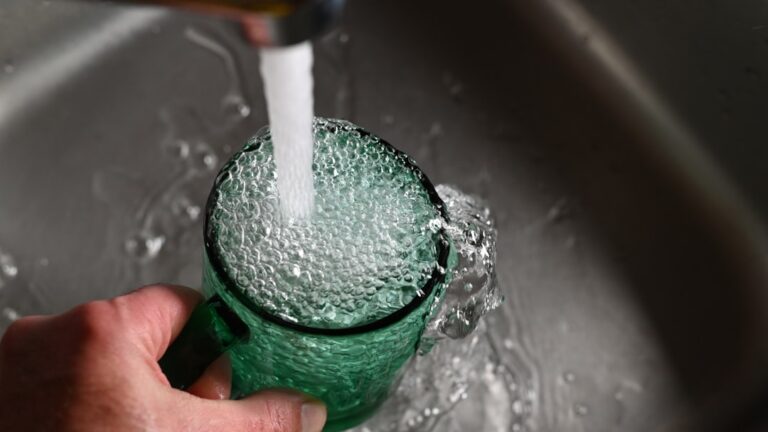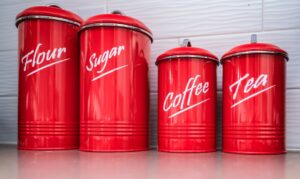Hard water stains are a common nuisance in many households, often manifesting as unsightly deposits on various surfaces. These stains are primarily caused by minerals such as calcium and magnesium that are present in hard water. When water evaporates, it leaves behind these mineral deposits, which can accumulate over time, creating a stubborn film that is difficult to remove.
The presence of hard water can vary significantly depending on geographical location, with some areas experiencing higher mineral content than others. Understanding the nature of hard water stains is crucial for effective cleaning and maintenance. The composition of hard water stains can vary, but they typically appear as white or cloudy spots on surfaces like glass, metal, and ceramic.
Over time, these stains can become more pronounced and challenging to eliminate, leading to a buildup that not only detracts from the aesthetic appeal of a home but can also cause damage to fixtures and appliances. Recognizing the signs of hard water stains early on can help homeowners take proactive measures to mitigate their effects and maintain a clean living environment.
Key Takeaways
- Hard water stains are caused by mineral deposits from water that evaporates, leaving behind unsightly marks on surfaces.
- Common areas affected by hard water stains include faucets, showerheads, glass surfaces, and metal fixtures.
- Natural remedies such as vinegar, lemon juice, and baking soda can be effective in removing hard water stains.
- Commercial cleaners containing ingredients like citric acid or lactic acid can also be used to effectively remove hard water stains.
- Prevent hard water stains from forming by using water softeners, wiping down surfaces regularly, and using protective coatings on glass and metal fixtures.
Identifying Common Areas Affected by Hard Water Stains
Common Areas Affected by Hard Water Stains
Bathrooms are often the first places where homeowners notice hard water stains. Showerheads, faucets, and tiles are frequently affected, leading to a dull appearance and potential corrosion over time. The combination of moisture and mineral buildup creates an ideal environment for stains to thrive, making regular cleaning essential.
Bathroom Surfaces at Risk
The constant exposure to water and minerals can lead to mineral deposits forming on bathroom surfaces that are frequently used. Showerheads, faucets, and tiles are particularly susceptible to hard water stains, which can detract from the overall cleanliness of the bathroom.
Kitchens: Another Hotspot for Hard Water Stains
Kitchens are another common area where hard water stains can appear, especially around sinks and dishwashers. Glassware, dishes, and even countertops can become marred by these stains, detracting from the overall cleanliness of the kitchen. Identifying these common areas affected by hard water stains allows homeowners to focus their cleaning efforts where they are most needed.
Natural Remedies for Removing Hard Water Stains
For those seeking eco-friendly solutions, several natural remedies can effectively combat hard water stains. One popular method involves using vinegar, a natural acid that can dissolve mineral deposits. By soaking a cloth in white vinegar and applying it to the stained area, homeowners can allow the solution to sit for a few minutes before wiping it away. This simple yet effective technique can yield impressive results without the need for harsh chemicals. Baking soda is another versatile ingredient that can be used in conjunction with vinegar for enhanced cleaning power.
Creating a paste by mixing baking soda with a small amount of water allows homeowners to scrub away stubborn stains gently. The abrasive nature of baking soda combined with the acidity of vinegar creates a powerful duo that can tackle even the most persistent hard water deposits. These natural remedies not only provide effective cleaning solutions but also promote a healthier home environment.
Using Commercial Cleaners to Remove Hard Water Stains
| Commercial Cleaner | Effectiveness | Price | Eco-Friendly |
|---|---|---|---|
| Brand A | High | No | |
| Brand B | Medium | Yes | |
| Brand C | Low | No |
While natural remedies can be effective, some homeowners may prefer the convenience of commercial cleaners specifically designed for removing hard water stains. These products often contain powerful acids or surfactants that can break down mineral deposits quickly and efficiently. When selecting a commercial cleaner, it is essential to read labels carefully to ensure compatibility with the surfaces being cleaned, as some products may be too harsh for delicate materials.
Using commercial cleaners typically involves applying the product directly to the stained area and allowing it to sit for a specified period before scrubbing or rinsing away. Many of these cleaners are formulated to tackle tough stains with minimal effort, making them an appealing option for busy households. However, it is crucial to follow safety guidelines and use protective gear when handling these chemicals to avoid any adverse reactions.
Preventing Hard Water Stains from Forming
Prevention is often the best strategy when it comes to hard water stains. Homeowners can take several proactive measures to minimize the formation of these unsightly deposits. One effective approach is to install a water softener, which reduces the mineral content in water before it enters the home.
By treating hard water at its source, homeowners can significantly decrease the likelihood of stains developing on surfaces throughout their living spaces. Regular cleaning routines also play a vital role in preventing hard water stains from becoming entrenched. Wiping down surfaces after use, particularly in bathrooms and kitchens, can help remove moisture before it has a chance to evaporate and leave behind mineral deposits.
Additionally, using squeegees in the shower or after washing dishes can further reduce the risk of stains forming by minimizing standing water on surfaces.
Tips for Cleaning Hard Water Stains in the Bathroom
Cleaning hard water stains in the bathroom requires a strategic approach to ensure effective removal without damaging surfaces. One useful tip is to focus on one area at a time, allowing for thorough cleaning without feeling overwhelmed. Starting with showerheads and faucets, homeowners can apply vinegar or a commercial cleaner directly to these fixtures and let it sit for several minutes before scrubbing with a soft cloth or sponge.
Tiles and grout lines often accumulate hard water stains as well. A mixture of baking soda and vinegar can be particularly effective for tackling these areas. By applying the paste to grout lines and allowing it to sit before scrubbing with an old toothbrush, homeowners can restore the original appearance of their tiles while eliminating stubborn stains.
Regular maintenance in the bathroom will not only keep surfaces looking pristine but also prolong their lifespan.
Tips for Cleaning Hard Water Stains in the Kitchen
In the kitchen, hard water stains can be particularly frustrating due to their impact on both aesthetics and hygiene. To effectively clean these stains, homeowners should start by addressing sinks and countertops first. A mixture of lemon juice and baking soda can create a powerful cleaning paste that not only removes stains but also leaves behind a fresh scent.
Applying this paste to stained areas and scrubbing gently will help lift deposits without scratching surfaces. Glassware is another common victim of hard water stains in the kitchen. To restore clarity to glasses and dishes, soaking them in a solution of equal parts vinegar and water can work wonders.
After soaking for about 15 minutes, rinsing thoroughly will reveal sparkling clean glassware free from mineral deposits. Implementing these cleaning tips regularly will help maintain a stain-free kitchen environment.
Removing Hard Water Stains from Glass Surfaces
Glass surfaces are particularly prone to hard water stains due to their smooth texture, which makes mineral deposits more visible. To effectively remove these stains, homeowners can utilize a combination of vinegar and baking soda as mentioned earlier or opt for commercial glass cleaners specifically formulated for tough stains. Applying the cleaner with a microfiber cloth ensures an even application while minimizing streaks.
For particularly stubborn stains that resist standard cleaning methods, using a razor blade or glass scraper can be an effective solution. Care must be taken when using this method to avoid scratching the glass surface; therefore, it is advisable to keep the blade at a low angle while gently scraping away deposits. Regularly cleaning glass surfaces will not only enhance visibility but also contribute to an overall polished appearance throughout the home.
Removing Hard Water Stains from Metal Fixtures
Metal fixtures such as faucets and showerheads require special attention when dealing with hard water stains due to their susceptibility to corrosion and tarnishing. To clean these fixtures effectively, homeowners should avoid abrasive cleaners that could scratch or damage the finish. Instead, using a soft cloth soaked in vinegar or lemon juice can help dissolve mineral deposits without harming the metal surface.
For tougher stains on metal fixtures, creating a paste with baking soda and water can provide additional scrubbing power while remaining gentle on finishes. Applying this paste with a soft sponge or cloth allows homeowners to tackle stubborn deposits without risking damage. Regular maintenance of metal fixtures not only keeps them looking new but also extends their lifespan by preventing corrosion caused by mineral buildup.
Removing Hard Water Stains from Tile and Grout
Tile and grout surfaces often bear the brunt of hard water exposure due to their porous nature. To effectively remove hard water stains from these areas, homeowners should start by applying a mixture of baking soda and vinegar directly onto stained grout lines. Allowing this solution to sit for several minutes before scrubbing with an old toothbrush will help lift stubborn deposits while restoring grout color.
For larger tile surfaces, using a mop or sponge soaked in vinegar diluted with water can help remove mineral buildup without damaging tiles. Following up with a thorough rinse will ensure that no residue remains behind, leaving tiles looking fresh and clean. Regularly cleaning tile and grout surfaces will prevent hard water stains from becoming entrenched, making maintenance easier over time.
Maintaining a Clean and Stain-Free Home
Maintaining a clean and stain-free home requires consistent effort and attention to detail. Homeowners should establish regular cleaning routines that incorporate strategies for preventing hard water stains from forming in the first place. This includes wiping down surfaces after use, utilizing squeegees in bathrooms, and implementing preventive measures such as installing water softeners where necessary.
In addition to routine cleaning practices, being proactive about addressing any signs of hard water stains as soon as they appear will help prevent larger issues down the line. By utilizing both natural remedies and commercial cleaners effectively, homeowners can keep their living spaces looking pristine while minimizing damage caused by mineral buildup over time. Ultimately, maintaining a clean home is not just about aesthetics; it contributes significantly to overall health and well-being within the household.
FAQs
What are hard water stains?
Hard water stains are mineral deposits left behind when water evaporates, leaving behind calcium and magnesium deposits on surfaces such as glass, metal, and tile.
How do hard water stains form?
Hard water stains form when water with high mineral content evaporates, leaving behind the minerals on surfaces. Over time, these deposits can build up and become difficult to remove.
What surfaces are prone to hard water stains?
Surfaces such as glass shower doors, metal faucets, and tile are prone to hard water stains due to their frequent exposure to water.
How can hard water stains be removed?
Hard water stains can be removed using various methods such as vinegar, lemon juice, baking soda, or commercial cleaning products specifically designed to remove mineral deposits.
Are there any preventive measures for hard water stains?
Using a water softener or installing a water filtration system can help reduce the mineral content in water, thus preventing the formation of hard water stains.
Are hard water stains harmful?
While hard water stains are not harmful to health, they can be unsightly and difficult to remove if left untreated. Regular cleaning and maintenance can help prevent the buildup of hard water stains.






